|
|
|
|
|
|
|
|

Today's Congressional Action:
The House and Senate are in session and not expected to consider Arctic legislation.
One week until "Ice-Diminishing Arctic" symposium. See below.
|
 Unused Nunavut Narwhal Tags Can Carry Over to New Year. Inuit hunters in Nunavut's north Hudson Bay area can enjoy a lot more maktaaq this year - that is if they can find a narwhal pod migrating nearby this year. Some 82 unused narwhal tags from last year's hunting season will carry over to this year's harvest, for a total of 239 tags for the region's 2015 harvest, according to a recent news release from Nunavut Tunngavik Inc. The carry-over of last year's tags is possible because of an "integrated fisheries management plan," the July 3 release added - a plan developed over the past five years between NTI, the federal Department of Fisheries and Oceans, local hunters and trappers organizations, regional wildlife organizations and the Nunavut Wildlife Management Board. Nunatsiaq Online Unused Nunavut Narwhal Tags Can Carry Over to New Year. Inuit hunters in Nunavut's north Hudson Bay area can enjoy a lot more maktaaq this year - that is if they can find a narwhal pod migrating nearby this year. Some 82 unused narwhal tags from last year's hunting season will carry over to this year's harvest, for a total of 239 tags for the region's 2015 harvest, according to a recent news release from Nunavut Tunngavik Inc. The carry-over of last year's tags is possible because of an "integrated fisheries management plan," the July 3 release added - a plan developed over the past five years between NTI, the federal Department of Fisheries and Oceans, local hunters and trappers organizations, regional wildlife organizations and the Nunavut Wildlife Management Board. Nunatsiaq Online
 Arctic Shrubs May Cause Greenhouse Emissions, Report Says. One of the largest ever studies of how climate change is remaking the face of the Arctic has found that shrubs are gradually taking over the tundra. And David Hik, co-author of the paper in Nature Climate Change, said the increasing dominance of shrubs over grasses is likely to be the cause of its own climate feedback. "The shrubs are a dark surface and they reflect less of the sun's radiation back into the atmosphere," he said. CBC News Arctic Shrubs May Cause Greenhouse Emissions, Report Says. One of the largest ever studies of how climate change is remaking the face of the Arctic has found that shrubs are gradually taking over the tundra. And David Hik, co-author of the paper in Nature Climate Change, said the increasing dominance of shrubs over grasses is likely to be the cause of its own climate feedback. "The shrubs are a dark surface and they reflect less of the sun's radiation back into the atmosphere," he said. CBC News
Ottawa Researchers in Cape Dorset to Document Arctic Plant Life. Researchers from the Canadian Museum of Nature in Ottawa are in Cape Dorset, Nunavut studying local plant life. Jeff Saarela and Roger Bull are spending a month in and around the hamlet as part of a larger multi-year research project. Their ultimate goal, Saarela said, is to produce a comprehensive catalogue of all plants that exist across the Canadian Arctic. "We just published a paper," said Saarela. "It came out a couple of weeks ago of several new species - or not new to science, but new to the Canadian Arctic Archipelago - that had not been found on the Arctic islands. CBC News
A Cooperative Approach to Mapping the Marine World. Following last year's success, the EU-funded FIXO3 project has launched a second call offering marine researchers the chance to use 15 ocean observatories free of charge. From the Arctic Ocean to the middle of the Atlantic and off the shores of Crete, Europe has established a series of permanent observatories to carry out multidisciplinary measurements of the open ocean. These monitoring stations represent a formidable research resource by facilitating the monitoring of the environment to see how it is changing and helping EU scientists to better understand how the global ocean system works. Phys.Org
|
|
Legislative Action
No Arctic legislation was formally considered yesterday.
|
|
Future Events
Begins in 7 days...and registration is now at capacity...contact Pablo (pablo.clemente-colon@noaa.gov) if you REALLY want to attend.
He'll see what he can do...
6th Symposium on the Impacts of an Ice-Diminishing Arctic on Naval and Maritime Operations, July 14-16, 2015 (Washington, DC, USA). This biennial symposium, co-hosted by the US National Ice Center and the US Arctic Research Commission, brings together nationally and internationally recognized experts on Arctic observations, climate change, and maritime operations. Past symposia expanded the discussion to include the impact of an ice-diminishing arctic on other nations and their maritime operations including commercial transportation, oil and gas exploration and exploitation, fisheries, and oceanographic research. The continuing reduction in Arctic sea ice extent remains a central focus.
Confirmed marquee speakers include Congressional leaders (Rep. Don Young, Senator Lisa Murkowski), the USCG Commandant (ADM Zukunft), State Dept. Arctic Rep. (ADM Robert Papp USCG (Ret.)), US Navy's Chief of Naval Research (RADM Winter), and NOAA's Chief Scientist (Dr. Rick Spinrad).
Other speakers will represent the State of Alaska, academic research, institutions private sector (oil and gas, maritime insurance), and other federal entities.
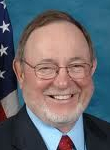  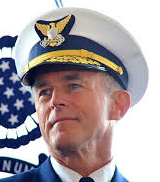
 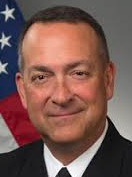 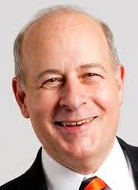
The Alaska Arctic: A Summit on Shipping and Ports, August 23-25, 2015 (Anchorage, Alaska, USA). Alice Rogoff will host the summit along with the state of Alaska and various partners, including President Ólafur Ragnar Grímsson of Iceland and Mead Treadwell, president of Pt Capital and former Alaska lieutenant governor. The purpose of the meeting is to build partnerships to develop safe and reliable shipping through the Alaskan Arctic. These partnerships will be necessary to finance needed ports of refuge, search and rescue equipment, transshipment facilities and icebreakers. At the same time, the interests of local and indigenous residents must be an integral part of any development planning.
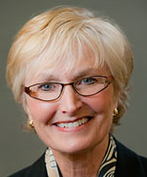
104th Meeting of the USARC, August 25-26, 2015 (Nome, AK, USA).
USARC (Fran Ulmer, Chair) will hold its next meeting in Nome, where Ulmer will present the 2015-2017 Goals Report. The Commission will tour the new, light icebreaker vessel R/V Sikuliaq in the Nome port, and will hear from local researchers on topics such as health, social science, marine science, marine mammal co-management research, federal research, renewable energy, climate shipping, port development, and water and sanitation, among other topics. A full agenda will be forthcoming.
Eighth Polar Law Symposium Alaska 2015, September 23-26, 2015 (Fairbanks and Anchorage, Alaska , USA). The Eighth Polar Law Symposium is co-hosted by Alaska Pacific University (APU), the University of Alaska Fairbanks, the University of Alaska Anchorage (through its Justice Center and its Institute of Social and Economic Research), the University of Washington School of Law, and Vermont Law School, in cooperation with the Arctic Law Section of the Alaska Bar Association. The symposium will be held on both campuses of the University of Alaska. The 2015 theme is: The Science, Scholarship, and Practice of Polar Law: Strengthening Arctic Peoples and Places.
2015 Arctic Energy Summit, September 28-30, 2015 (Fairbanks, Alaska, USA). The Institute of the North's 2015 Arctic Energy Summit builds on our legacy efforts to address energy as a fundamental element of the sustainable development of the Arctic as a lasting frontier.Central to this concept is a focus on providing pathways for affordable energy development in the Arctic and for Arctic communities.
2015 Arctic Circle Assembly, October 16-18, 2015 (Reykjavik, Iceland).
The Arctic Circle is the largest global gathering on the Arctic. It is attended by heads of state and governments, ministers, members of parliament, officials, experts, scientists, entrepreneurs, business leaders, indigenous representatives, environmentalists, students, activists, and others from the growing international community of partners and participants interested in the future of the Arctic. The Arctic Circle highlights issues and concerns, programs, policies and projects; it provides platforms for dynamic dialogue and constructive cooperation. While the plenary sessions are the responsibility of the Arctic Circle, the breakout sessions are organized by various participating partners in their own name and with full authority over the agenda and the choice of speakers.
The Polar Oceans and Global Climate Change, November 3-6, 2015 (La Jolla, California USA). The American Polar Society will host this Symposium at Scripps Institution of Oceanography. A flyer with a partial list of presenters is available on the Society's website (americanpolar.org) and from the Society's Membership Chairman by email.
Forum for Arctic Modeling and Observational Synthesis Meeting, November 3-6, 2015 (Cape Cod, MA, USA). On November 3rd, the 2015 School for young scientists will consider "Regional Oceanography of the Arctic marginal seas" with lectures covering major features of atmospheric, sea ice and oceanographic regimes of the: Bering, Chukchi, Beaufort, East-Siberian, Laptev Sea, Kara, Barents and Nordic seas. On November 4-6, the meeting portion will summarize project accomplishments for the last 3 years of activities and will focus on the formulation of scientific questions and directions for FAMOS future research (2016-2019) to: (a) improve Arctic modeling, employing very high resolution models; (b) develop and test new arctic monitoring/observing systems and (c) improve predictions of Arctic environmental parameters with reduced uncertainties.
Due North: Next Generation Arctic Research & Leadership, November 5-8, 2015 (Calgary, Alberta, Canada). The Association of Canadian Universities for Northern Studies (ACUNS) will convene an interdisciplinary conference of early career scientists working on Arctic issues. Topics will include: Arctic Communities, Arctic Sustainable Development, Arctic Wildlife, Ecosystem and Biodiversity, Arctic Food Security, Arctic Landscapes, Climate Change and Adaptation, Disaster Risk Management, Policy, Politics and Leadership, Arctic Environment (Data and Techniques), Arctic Resources, and Future of Arctic.
Arctic Observing Open Science Meeting, November 17-19, 2015 (Seattle, Washington). The Arctic Observing Open Science Meeting will be 2.5 days and held at the Hyatt at Olive 8 in Seattle, Washington. The conference will bring together individuals and teams involved in the collection, processing, analysis, and use of observations in the Arctic - from academia, agencies, industry, and other organizations. The meeting will be convened as a combination of plenary talks, parallel science sessions, and a poster session. The agenda and registration information will be forthcoming.
In the Spirit of the Rovaniemi Process 2015, November 24-26, 2015 (Rovaniemi, Lapland, Finland). When the Arctic Environmental Protection Strategy, the so-called Rovaniemi Process, was adopted in 1991, it aimed at overcoming divisions and turning the zone of Cold War military tensions into a region of peace and co-operation. In this joint effort focusing on the protection of environment, and later, sustainable development, the Arctic states supported by indigenous organizations laid grounds for institutionalized collaboration and the emergence of Arctic regional identity. The second international conference will bring together decision-makers, scholars, artists, designers and students to address these questions and discuss the Arctic in global, regional and local perspectives.
|
|

  
4350 N. Fairfax Drive, Suite 510
Arlington, VA 22203, USA
External links in this publication, and on the USARC's World Wide Web site ( www.arctic.gov) do not constitute endorsement by the US Arctic Research Commission of external Web sites or the information, products or services contained therein. For other than authorized activities, the USARC does not exercise any editorial control over the information you may find at these locations. These links are provided consistent with the stated purpose of this newsletter and the USARC Web site.
|
|
|
|
|
|
|
|
|